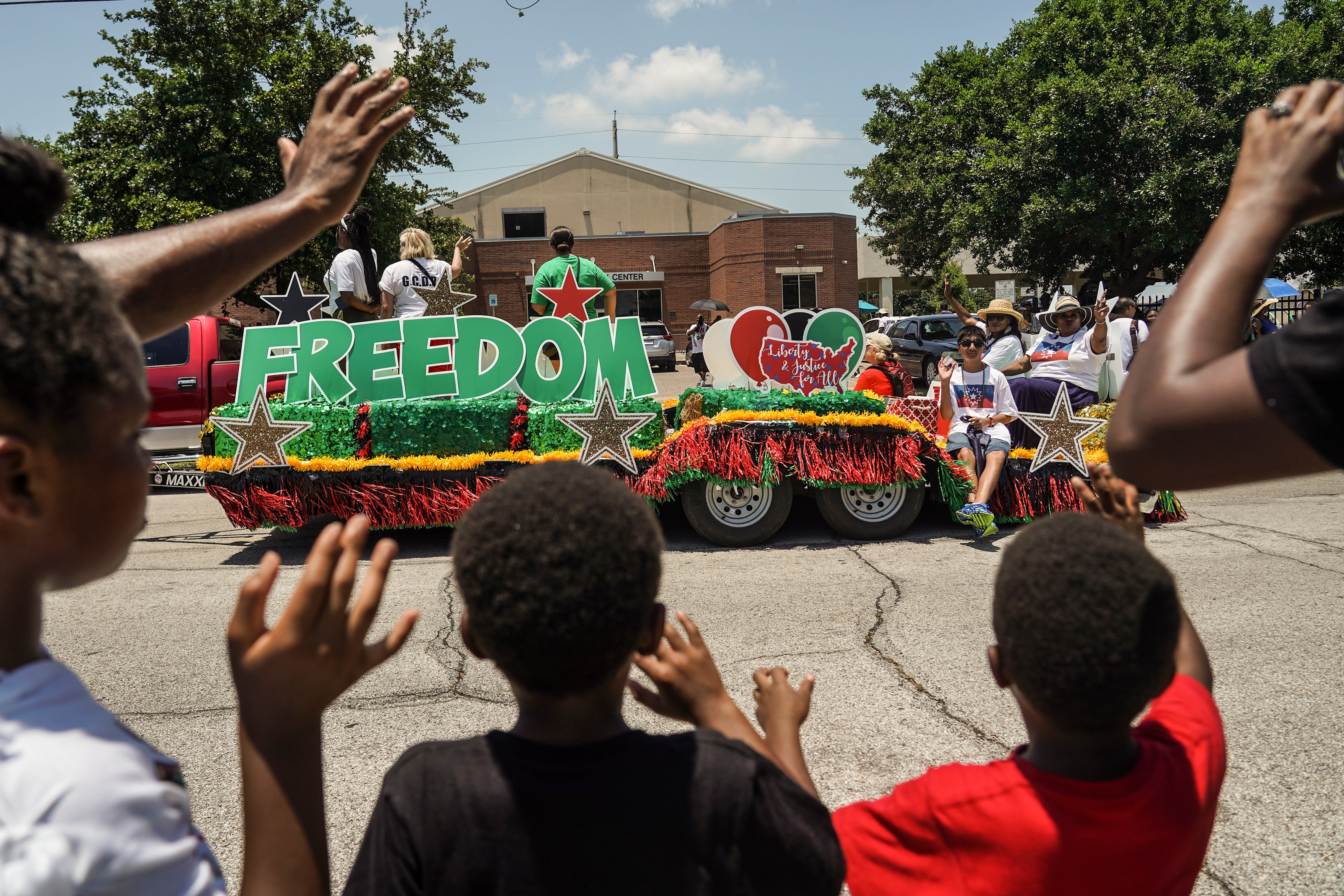Juneteenth is particularly important while voter suppression is still rife
You’d be forgiven for being a little confused about why Juneteenth, a holiday that specifically celebrates the end of slavery in Texas, is so nationally important, writes Holly Baxter


Juneteenth only became a federal holiday – the American equivalent of a bank holiday – in 2021, despite the fact that it’s been celebrated informally for years. Biden signed the declaration on 17 June last year, and most businesses across the US now give their employees time off to observe. It’s an occasion that confuses a lot of Brits, but it has special significance in relation to the Black Lives Matter movement and will no doubt become much more widely recognised internationally over the next decade.
You’d be forgiven for being a little confused about why Juneteenth, a holiday that specifically celebrates the end of slavery in Texas, is so important nationally. The answer is long and complicated, but it’s worth providing a quick summary:
Even though the slave trade had been outlawed years before by Britain and the US, the practice of keeping people enslaved continued in the southern states for much longer. During the American civil war, slave-owners on the side of the Confederacy moved into Texas with their slaves as the Lone Star state continued fighting, supposedly convinced that the economic survival of the state depended on being able to use enslaved people to cultivate the land. (It’s worth pointing out that not everyone involved in the war fought for the Confederacy; thousands of Texans also fought for the anti-slavery union.)
When it became obvious that the union had prevailed in the civil war, the Emancipation Proclamation was read out, declaring that all slaves in Texas were free. That functionally meant that slavery was fully and practically outlawed across the United States. Celebrations were held across the state, beginning in Austin, where I spent the last week interviewing people about the possible overturning of Roe v Wade and on the way observing preparations for Juneteenth.
There is a large Black population in Texas, descended from the enslaved people forced to travel from the north during the civil war in the 1800s. And when the Black population of Austin organised Juneteenth street parties in the years after the Emancipation Proclamation, they weren’t simply celebrating: they were aiming to educate formerly enslaved people about their new rights as free Americans, and in particular their voting rights.
Voting rights for Black people remain a big issue in the US, especially since Donald Trump pushed his “Big Lie” by claiming that cities and constituencies with majority Black populations had been “vote-dumping” or allowing people to vote multiple times. That’s why Juneteenth – for all its fun, floats, and firefighters throwing sweets to children from the top of tinsel-bedecked fire trucks – is still a political event.
It’s also a very Texan event, where Black cowboys come out on horseback in leathers and Stetson hats to celebrate their heritage in a state with a complicated history. Before the civil war, Texas was at war with Mexico in an effort to become an independent Mexican state (the legacy of this is seen in the ubiquitous TexMex food, and in the fact that many billboards and official signs throughout the state are in Spanish). It has always been a magnet for immigrants from both the north and the south, and its people have a fiercely independent streak.
Indeed, as my colleague Richard Hall reported this week, the Lone Star state is once again discussing secession this year – but the likelihood of this happening is slim (even if only because most Texans would balk when they realised they’d have to give up the dollar, and most libertarian-minded Republicans would balk once they realised how many senators the GOP would lose without Texas reliably delivering them wins in every election).
Austin is a particularly interesting city, known by some Texans as “the blueberry in the tomato soup” for its propensity to lean progressive and vote blue (ie Democrat) while the rest of the state stays stubbornly red. Its Juneteenth celebrations were a joyful sight to behold, and a mishmash of cultures. There is also, of course, something poignant about watching people celebrate simply to mark the moment their ancestors were no longer enslaved – especially when gerrymandering and voter suppression are still rife, and the threat of another Trump presidential run in 2024 is on the horizon.
Join our commenting forum
Join thought-provoking conversations, follow other Independent readers and see their replies
Comments
Bookmark popover
Removed from bookmarks